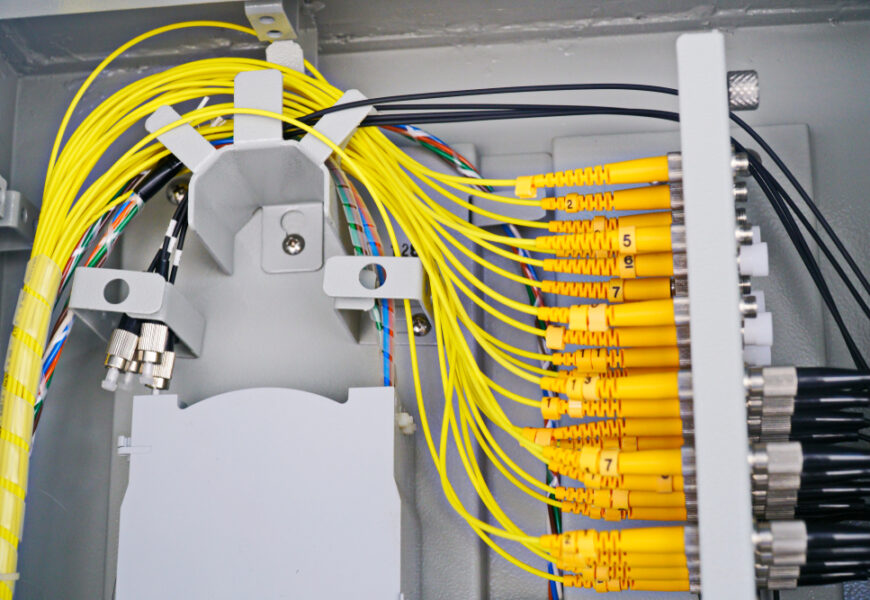A Network Termination Unit (NTU) is a device that terminates a network connection.
What Is A Network Termination Unit (Ntu)?
A Network Termination Unit (NTU) is an essential component in telecommunications networks. It serves as the interface between the service provider’s network and the customer’s premises. The main purpose of an NTU is to terminate the service provider’s network and provide connectivity to the customer’s equipment.
NTUs are designed to ensure reliable connectivity by providing signal termination, amplification, and regeneration. They play a crucial role in maintaining signal integrity and minimizing signal degradation over long distances. By effectively terminating the network, NTUs contribute to efficient data transmission and improved overall network performance.
These devices are especially important in businesses and organizations that require high-speed, secure, and uninterrupted internet connectivity. NTUs are available in different types and configurations to suit varying network requirements.

Credit: requtech.com
The Evolution Of Ntus
The Network Termination Unit (NTU) has undergone significant evolution over the years. Its historical background unveils a device that has continually advanced and improved. From its inception, NTUs have played a crucial role in telecommunications networks. The rapid growth in technology has led to numerous benefits in modern NTUs.
These devices now offer enhanced functionality and efficiency, enabling seamless connectivity and improved transmission speeds. Modern NTUs boast a host of features, such as improved signal quality, increased bandwidth, and enhanced network management capabilities. Additionally, they provide greater flexibility and better integration with existing infrastructure.
With these advancements, NTUs have become an indispensable component in modern telecommunications networks, ensuring reliable and high-quality communication services.
Key Features And Functions Of Ntus
NTUs, or Network Termination Units, offer key features and functions to enhance connectivity. These units play a crucial role in ensuring performance and reliability. By providing an overview of essential features, NTUs enable seamless communication. They eliminate common connectivity issues, allowing for efficient data transfer.
With their robust capabilities, NTUs contribute to improved network stability and reduced downtime. These units are designed to optimize signal transmission and reception, ensuring a smooth and uninterrupted flow of information. By prioritizing performance and reliability, NTUs enable businesses to operate efficiently and effectively.
Whether it’s for a small office or a large enterprise, the importance of NTUs in maintaining connectivity cannot be overstated. With their advanced technology and seamless integration, NTUs provide the backbone for superior network connectivity.
Factors To Consider When Selecting An Ntu
Selecting the right Network Termination Unit (NTU) involves considering various factors. First, ensure compatibility with your current network infrastructure. The NTU should seamlessly integrate without disruptions. Secondly, scalability and future-proofing are crucial. The NTU should support future network expansions and technological advancements.
Additionally, prioritize security features and protocols. The NTU should have robust measures to safeguard data and prevent unauthorized access. When evaluating NTUs, look for encryption protocols and firewall capabilities. By taking these factors into account, you can choose an NTU that meets your network requirements and ensures a smooth and secure operation.
Available Options In Ntus
Network Termination Units (NTUs) offer a wide range of options for connectivity. Wired NTUs provide stable and reliable connections. They often offer higher bandwidth and lower latency. On the other hand, wireless NTUs provide flexibility and easy installation without the need for physical cables.
They are suitable for areas where wired connections are difficult to implement. In the market, you can find various types of NTUs, including fiber optic, DSL, and Ethernet. Fiber optic NTUs are known for their high speed and capacity, making them ideal for businesses with demanding network requirements.
DSL NTUs utilize existing copper lines, making them cost-effective for smaller organizations. Ethernet NTUs provide a simplified and standardized solution for network connectivity. When choosing an NTU, it’s important to consider the pros and cons of each option based on your specific needs, budget, and infrastructure.
Case Studies: Successful Implementation Of Ntus
Network Termination Units (NTUs) have proven to be successful in various organizations across different industries. These real-life case studies illustrate the effective implementation of NTUs and the benefits experienced in terms of enhanced connectivity and reliability. Organizations from diverse backgrounds have learned valuable lessons and best practices for implementing NTUs.
By leveraging these examples, businesses can ensure seamless connectivity and optimize their network performance. From improved data transfer speeds to enhanced network security, the advantages of NTUs are evident. Organizations have discovered the importance of proper installation and configuration, as well as the need for ongoing monitoring and maintenance.
These case studies serve as invaluable resources for businesses seeking to adopt NTUs and reap the numerous benefits they offer. With the lessons learned and best practices implemented, organizations can achieve a robust and reliable network infrastructure.
Common Issues With Ntus
Network Termination Units (NTUs) often encounter common connectivity problems that can disrupt network performance. Troubleshooting tips for addressing these issues include diagnosing NTU-related problems and implementing preemptive maintenance strategies. By actively monitoring and analyzing the NTU’s performance, potential issues can be identified before they escalate.
Regularly checking for loose or damaged cables, ensuring proper power supply, and verifying network configurations are all essential steps for maintaining a reliable connection. Additionally, periodic firmware updates and hardware inspections can help prevent unexpected disruptions. Implementing these proactive measures not only prevents network downtime but also increases the overall efficiency and longevity of the NTU.
Maintain a stable network connection by staying proactive and vigilant in troubleshooting and maintaining your NTU.
Best Practices For Ntu Maintenance
Regular inspections and software updates are essential for proper maintenance of Network Termination Units (NTUs). These practices ensure that the NTUs are functioning optimally and prevent any potential issues. By regularly inspecting the units, any physical damages or faults can be identified and addressed promptly.
Software updates should also be performed to ensure that the NTUs are running on the latest and most secure version. In addition, having backup and recovery procedures in place is crucial to mitigate any data loss or system failures. Collaborating with vendors for technical support is another recommended practice, as they can provide valuable expertise and assistance when needed.
By following these best practices, NTU maintenance can be efficiently managed, ensuring smooth and reliable network operations.
Conclusion
To sum up, the Network Termination Unit (NTU) plays a crucial role in ensuring smooth and efficient communication within a network. This device serves as a bridge between the service provider and the customer, enabling the transfer of information over long distances.
By providing a demarcation point and managing signal conversion, the NTU ensures that data and voice transmissions are reliable and secure. Additionally, it facilitates troubleshooting and maintenance tasks, allowing for prompt detection and resolution of network issues. With advanced features such as remote management capabilities and power saving options, the NTU offers convenience and cost-efficiency.
As businesses continue to rely on seamless connectivity, the importance of a reliable and versatile NTU cannot be overstated. By investing in this essential network component, organizations can enhance their productivity and stay ahead in the highly competitive digital landscape.
So, make sure to choose the right NTU that aligns with your specific network requirements and enjoy uninterrupted and efficient communication.







